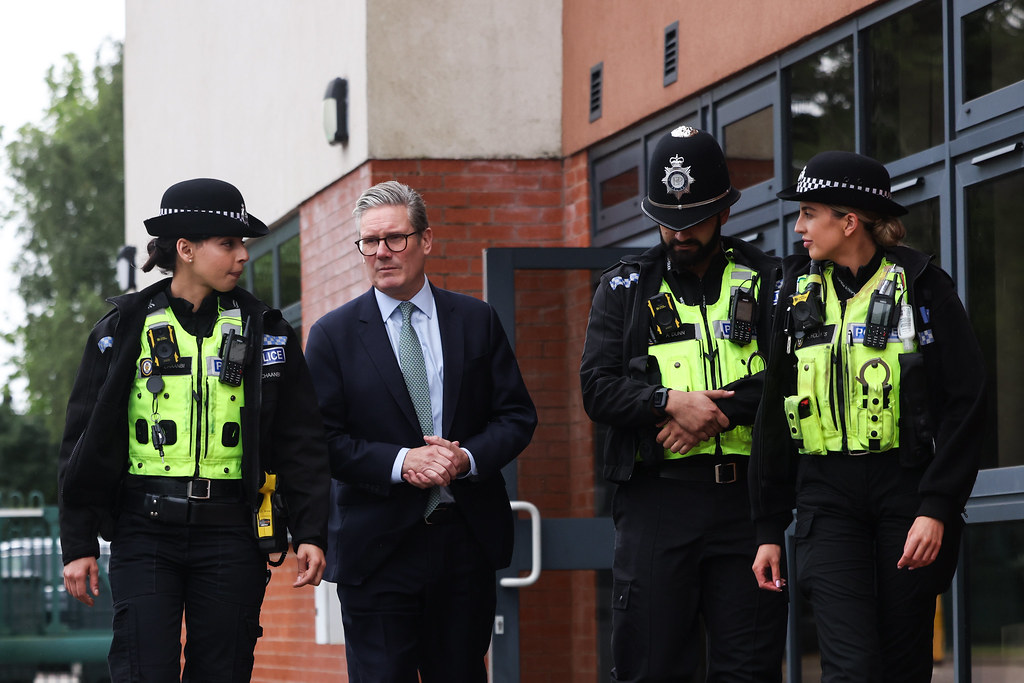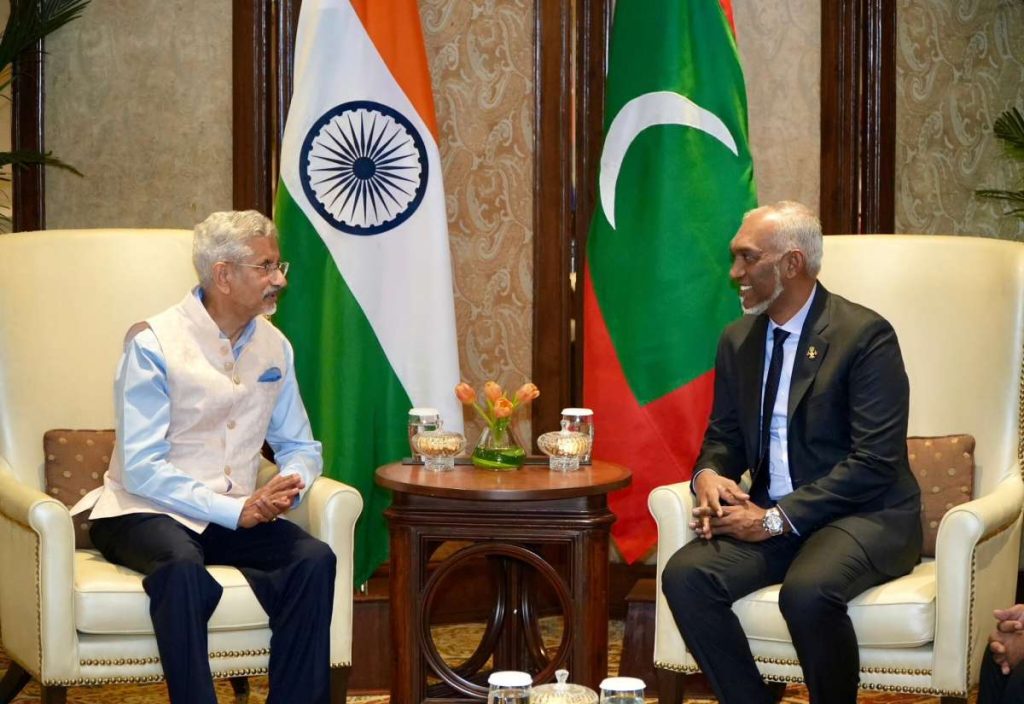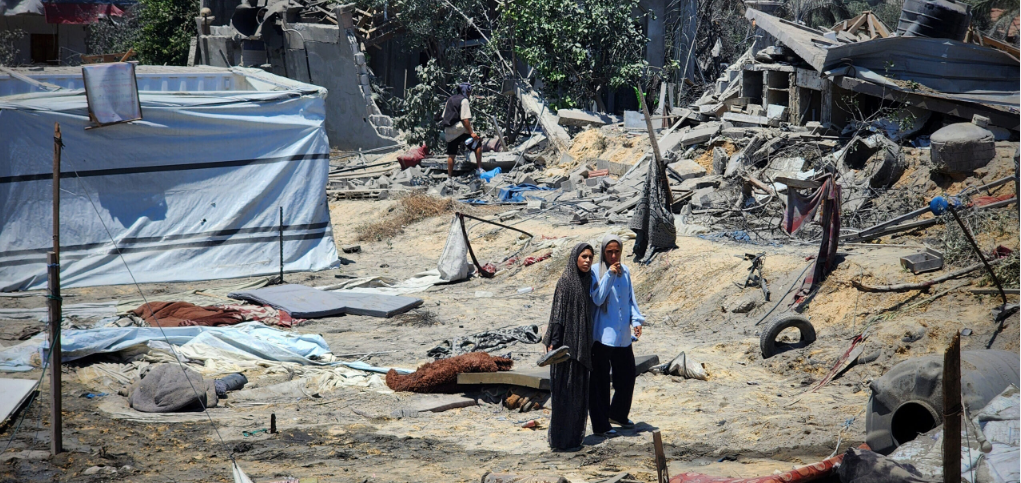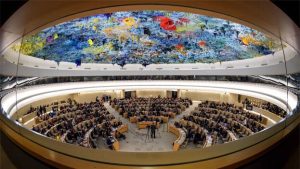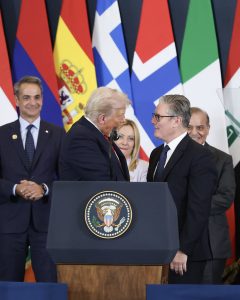The unrest has quickly overshadowed plans Starmer rolled out when he came to power last month after his Labour Party swept Conservatives out of office in a landslide…reports Asian Lite News
Just a month into the job, British Prime Minister Keir Starmer sounds more like the prosecutor he used to be than the leader of a powerful nation as he tries to quell riots that have swept the country in the past week.
The unfolding crisis presents his first major test since taking power on July 5.
Starmer has blamed far-right instigators for circulating rumors and organizing protests that have targeted mosques, singled out minority communities and featured Nazi salutes, racist rhetoric and attacks that have wounded more than 100 police officers.
Misinformation began circulating on social media last week about the teen charged with fatally stabbing three girls at a Taylor Swift-themed dance class and wounding 10 others on July 29. The suspect was incorrectly identified as a Muslim asylum seeker, spiking racial and ethnic tensions that led to violent unrest.
“I guarantee you will regret taking part in this disorder whether directly or those whipping up this action online, and then running away themselves,” Starmer said Sunday after a weekend of violence that included a mob storming and setting fire to a hotel housing migrants. “This is not protest. It is organized, violent thuggery.”
The unrest has quickly overshadowed plans Starmer rolled out when he came to power last month after his Labour Party swept Conservatives out of office in a landslide.
The new government wanted to focus on getting a sluggish economy moving and fixing public services, such as Britain’s revered national health care system, that have been hobbled by deep cuts following the 2008 financial crisis, said Patrick Diamond, a public policy professor at Queen Mary University of London.
“It doesn’t ideally want to be dealing with these kind of identity conflicts,” Diamond said. “I think the protests, the riots are undoubtedly uncomfortable. Governments have plans when they come to office but they often get blown off course and this is another demonstration of that.”
Diamond, who was a policy adviser to the previous two Labour prime ministers, Tony Blair and Gordon Brown, likened it to the crisis Brown faced when he found his agenda swamped by a flooding crisis when he took office in 2007.
Starmer, who was chief prosecutor for England and Wales during the last major outbreak of riots in 2011, has responded with a message of reassurance that communities will be kept safe and perpetrators will be harshly punished.
He has also announced plans to create a “standing army” of specialist police to deal with rioting and improve communication and cooperation between law enforcement agencies as mobs of protesters are believed to be traveling to different towns to stir up trouble.
One of the political issues facing Starmer is whether he’s seen to be in control of events and is using the whole government in response, effectively providing public services and dealing with issues of community cohesion, Diamond said.
“It’s an important early test of the ministers,” Diamond said. “Are they in control of the crisis or is the crisis in control of them?”
So far, Starmer’s main political foes have been united in condemning the violence and there hasn’t been much criticism of his response.
James Cleverly, the former Conservative home secretary, has said the government should have been quicker in its response to the riots. He has also questioned the purpose and need for the so-called army of police Starmer has called for.
Nigel Farage, leader of the right-wing populist Reform UK party, which only has five seats in Parliament despite winning 14% of the vote, has been widely criticized for making the divisive claim that rioters are subject to “two-tier policing” and are treated more harshly than others, such as Black Lives Matter protesters.
A large fiscal shortfall could complicate efforts to respond to the crisis as Starmer’s government pledges to pay police overtime, potentially hold night and weekend court sessions to deal with an influx of cases from the mayhem and make space in an already overcrowded prison system for more than 500 additional inmates.
On the day of the stabbings in the northeast seaside town of Southport, Treasury Secretary Rachel Reeves had announced what she said was a newly discovered 22-billion-pound ($28 billion) “black hole” in public finances left by the previous administration.
“The dire state of the criminal justice system that the new Labour government has inherited from the Conservatives makes this difficult situation especially challenging in terms of a lack of available prison spaces, a really severe backlog in the courts that limits how cases can be processed,” said Cassia Rowland, a senior researcher at the Institute for Government think tank. “All of these things will affect the ability of the police to respond to unrest and disorder, and maintain law and order in the streets.”
More than 400 people have been arrested over violence in more than two dozen towns and cities and about 100 have been charged. Few have been released on bail, as some judges have said they don’t want to run the risk of a defendant being released and rejoining the fray.
ALSO READ-UK envoy to Malaysia Terry to join Starmer’s office

